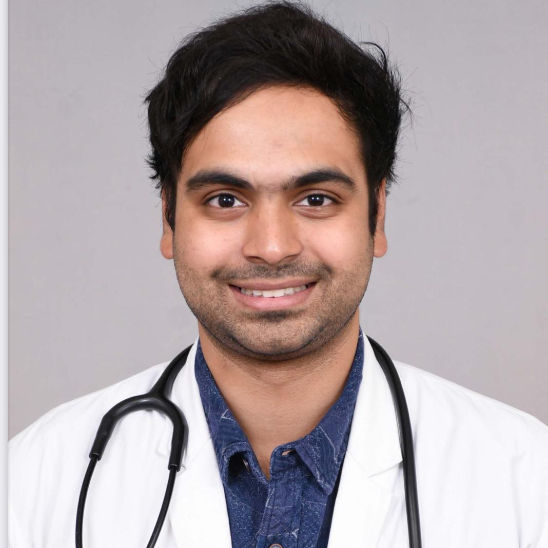USG Full Form in Medical Usage
Discover the full form of USG in medical usage and its crucial role in diagnostics. Understand what USG (Ultrasonography) means, how it works, and why it's a vital tool for doctors to visualize internal organs safely.


Introduction
When you visit a doctor for certain health concerns, you might hear the term "USG" being recommended. If you're wondering what it means and why it's important, this article will help you understand everything in simple terms.
What is USG?
USG stands for Ultrasonography, commonly known as an ultrasound scan. It is a safe, painless, and noninvasive imaging test that uses high frequency sound waves to create pictures of the inside of your body. Unlike Xrays or CT scans, USG does not use radiation, making it a preferred choice for many diagnostic purposes, especially for pregnant women and children.
Why is USG Done?
A USG scan helps doctors examine different organs and tissues in your body. Some common reasons for getting an ultrasound include:
Pregnancy Monitoring – To check the growth and health of the baby.
Abdominal Issues – To examine the liver, kidneys, gallbladder, pancreas, or spleen.
Pelvic Exams – To assess the uterus, ovaries, or prostate.
Heart Function (Echocardiography) – To see how well the heart is working.
Blood Flow (Doppler Ultrasound) – To check blood circulation in veins and arteries.
Muscle or Joint Problems – To detect injuries, swelling, or tears.
How Does USG Work?
During a USG scan:
1. A gel is applied to your skin over the area being examined.
2. A small handheld device called a transducer is moved over the gel.
3. The transducer sends sound waves into your body, which bounce back to create images on a screen.
4. The doctor or technician interprets these images to diagnose any issues.
The procedure is quick (usually 1530 minutes), painless, and does not require any special preparation unless specified (like fasting for an abdominal scan).
Get Your Symptoms Checked By Top Specialists
Benefits of USG
Benefits of USG:
No Radiation – Safe for pregnant women and children.
NonInvasive – No needles or cuts are involved.
RealTime Imaging – Doctors can see movement (like a baby’s heartbeat).
Cost-Effective – Generally more affordable than MRI or CT scans.
When Should You Get a USG?
Your doctor may recommend a USG if you have symptoms such as:
Unexplained pain or swelling in the abdomen
Abnormal bleeding or menstrual issues
Suspected gallstones or kidney stones
Difficulty in urination (for prostate or bladder checks)
Monitoring a pregnancy
How to Prepare for a USG?
Depending on the type of scan, you may need to:
Fast for 6-8 hours before an abdominal USG.
Drink water and hold your bladder for a pelvic or pregnancy scan.
Wear comfortable, loosefitting clothing.
Your doctor will give you specific instructions based on the scan type.
Are There Any Risks?
USG is extremely safe with no known side effects. Unlike X rays or CT scans, it does not expose you to radiation. However, in rare cases, excessive pressure from the transducer might cause slight discomfort.
Tips for a Smooth USG Experience
Tips for a smooth USG Experience:
1. Follow Preparation Guidelines – If fasting is required, avoid eating or drinking.
2. Stay Relaxed – The procedure is quick and painless.
3. Ask Questions – If unsure, clarify any doubts with your doctor or technician.
4. Wear Comfortable Clothes – Easytoremove clothing helps in some scans.
When to Consult a Doctor?
If your doctor has advised a USG, it’s important to get it done as soon as possible to detect any issues early. Early diagnosis can help in better treatment and recovery.
Need a USG Scan? Book Now!
If your doctor has recommended an ultrasound, you can easily schedule a USG test through Apollo 24|7. With expert radiologists and advanced technology, you can get accurate results without long waiting times.
Final Thoughts
USG is a safe, effective, and widely used diagnostic tool that helps doctors see inside your body without surgery or radiation. Whether it's for pregnancy, abdominal pain, or other health concerns, an ultrasound provides valuable insights for better treatment.
If you have any concerns about your health, always consult your doctor and follow their advice. Stay informed, stay healthy!
Would you like to schedule a USG scan or consult a specialist? Visit Apollo 24|7 for quick and reliable healthcare services!
Consult Top Specialists
Get Your Symptoms Checked By Top Specialists

Dr. M L Ezhilarasan
General Practitioner
6 Years • MBBS
Visakhapatnam
Apollo 24|7 Clinic - Andhra Pradesh, Visakhapatnam

Dr D M Karthik
General Practitioner
4 Years • MBBS, Fellowship in Diabetes Mellitus, Advance certificate in Diabetes Mellitus, Derma Nutrition Certification
Visakhapatnam
Apollo 24|7 Clinic - Andhra Pradesh, Visakhapatnam

Dr. Harshendra Jaiswal
General Physician/ Internal Medicine Specialist
12 Years • MBBS , MD (General medicine)
Kolkata
108 DHANA DHANVANTARI Clinic, Kolkata
(25+ Patients)

Dr. Anand Ravi
General Physician
2 Years • MBBS
Bengaluru
PRESTIGE SHANTHINIKETAN - SOCIETY CLINIC, Bengaluru

Dr Bhargav Vuppumalla
General Physician/ Internal Medicine Specialist
5 Years • MBBS MD GENERAL MEDICINE
Bengaluru
Apollo Medical Center, Marathahalli, Bengaluru
Consult Top Specialists

Dr. M L Ezhilarasan
General Practitioner
6 Years • MBBS
Visakhapatnam
Apollo 24|7 Clinic - Andhra Pradesh, Visakhapatnam

Dr D M Karthik
General Practitioner
4 Years • MBBS, Fellowship in Diabetes Mellitus, Advance certificate in Diabetes Mellitus, Derma Nutrition Certification
Visakhapatnam
Apollo 24|7 Clinic - Andhra Pradesh, Visakhapatnam

Dr. Harshendra Jaiswal
General Physician/ Internal Medicine Specialist
12 Years • MBBS , MD (General medicine)
Kolkata
108 DHANA DHANVANTARI Clinic, Kolkata
(25+ Patients)

Dr. Anand Ravi
General Physician
2 Years • MBBS
Bengaluru
PRESTIGE SHANTHINIKETAN - SOCIETY CLINIC, Bengaluru

Dr Bhargav Vuppumalla
General Physician/ Internal Medicine Specialist
5 Years • MBBS MD GENERAL MEDICINE
Bengaluru
Apollo Medical Center, Marathahalli, Bengaluru




